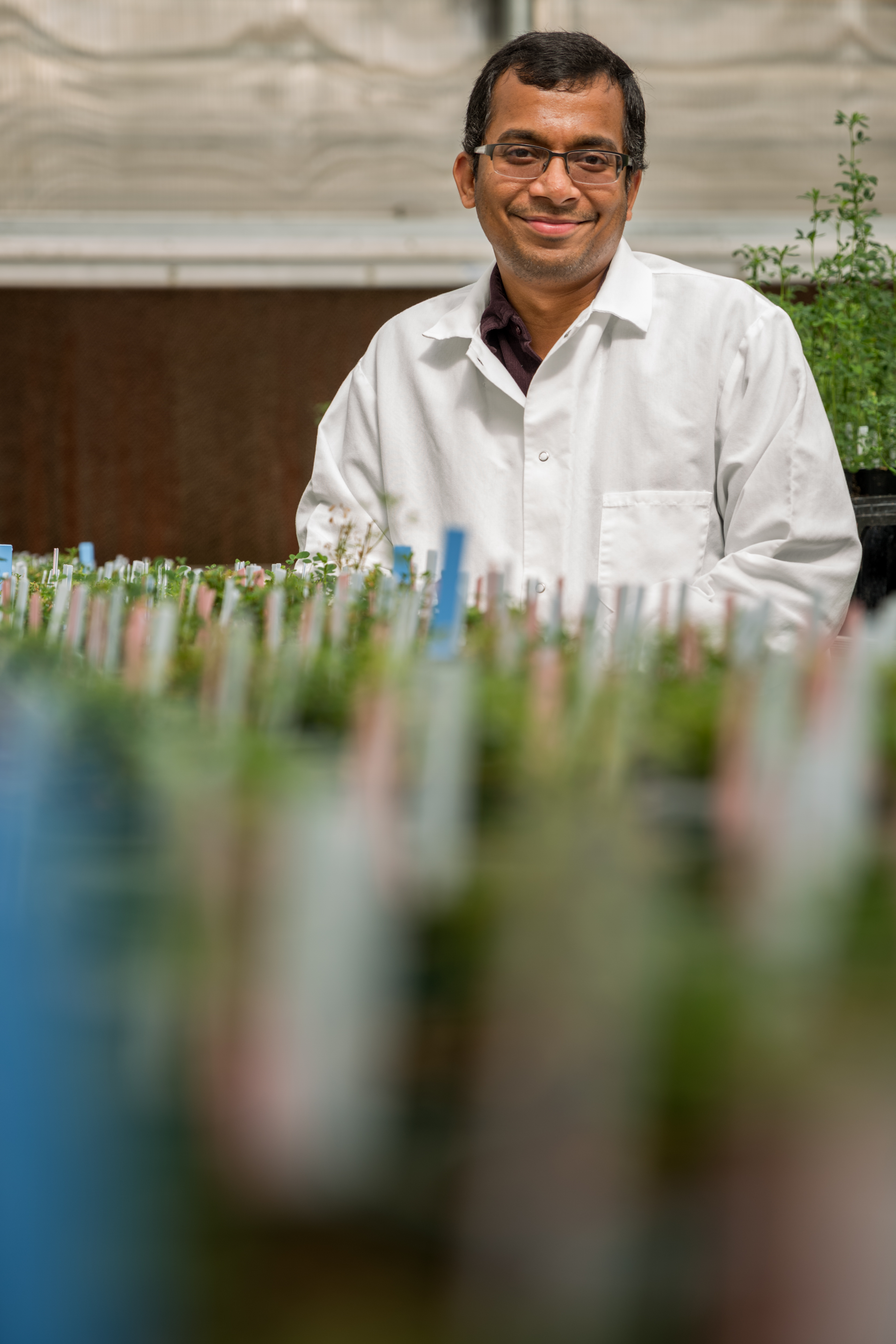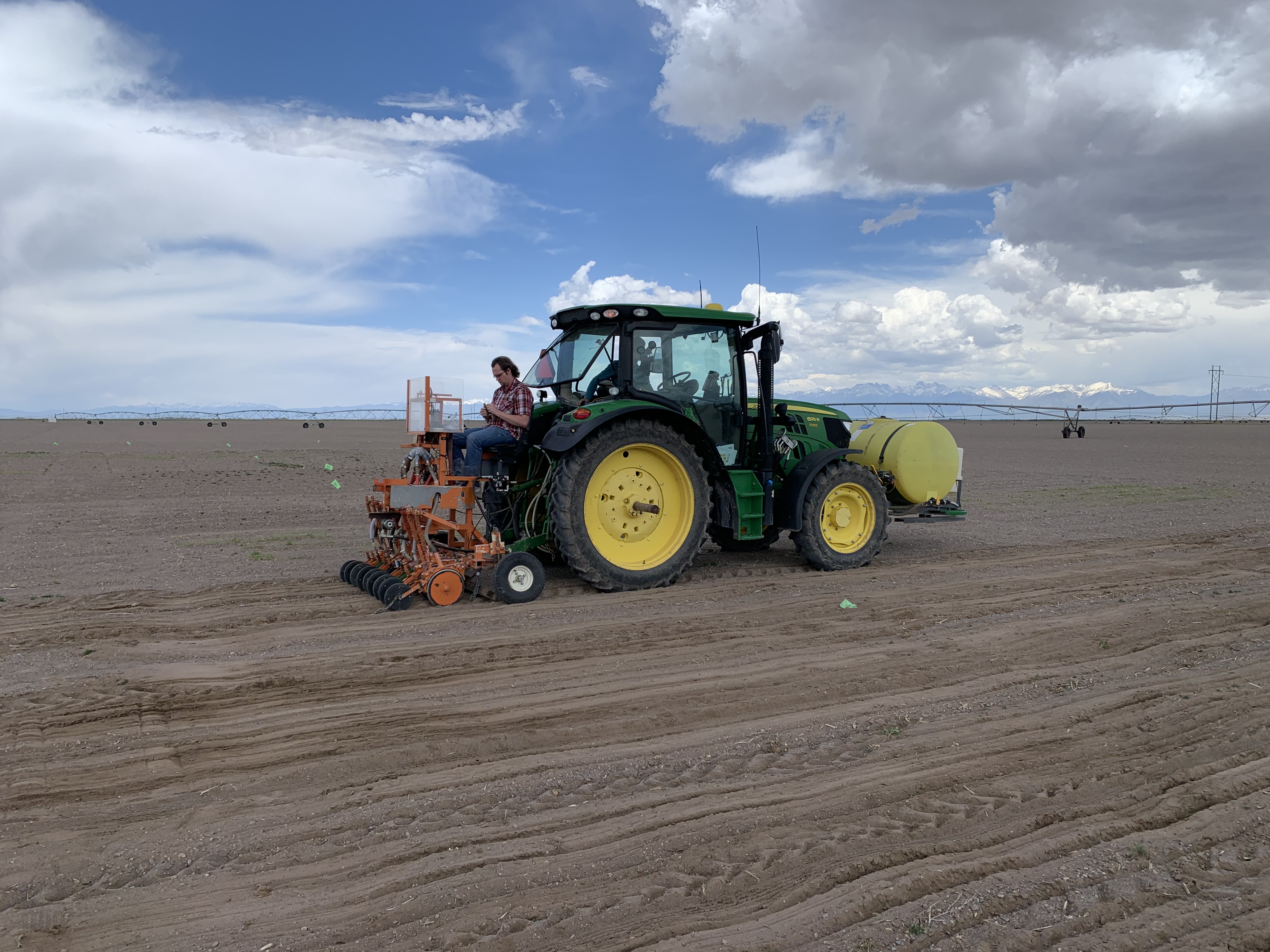 Colorado State University has a 130-year history with potato research that is continuing with the help of new researchers.
Colorado State University has a 130-year history with potato research that is continuing with the help of new researchers.
Chakradhar Mattupalli is one who has recently joined a respected team of researchers at the CSU’s San Luis Valley Research Center in October 2018 with his new job as a research professor and extension specialist in plant pathology. Since being hired, Mattupalli says he has been working on the management of soil-borne and foliar diseases of potatoes.
“Soil-borne diseases such as powdery scab are of concern for potato growers in the valley,” says Mattupalli. “This disease limits the type of potato varieties that a grower can grow, as well as reduces export opportunities. My program is currently conducting experiments to identify various soil management and crop rotation options to mitigate this disease stress.”
Mattupalli does his work in a de novo plant pathology lab, though one challenge is making it a fully functional lab on a small budget. Once the lab has all the necessary components, Mattupalli says he is interested in studying cropping systems that would reduce losses from soil-borne diseases and increase economic returns to the grower.
“There is a renewed interest among growers about various management approaches for improving potato soil health,” Mattupalli says. “However, due to the high altitudes of this region, the choice of rotation crops is limited.” His research helps reach a new understanding of how changes in management practices affect population levels of target and non-target pathogens.
Mattupalli’s career has always been agriculturally based and started at a bank in India as a rural development officer. Growers were a part of his clientele, and he provided loans and learned more about agriculture as a business.
“During these interactions with growers, I have understood the real-world importance of plant diseases and their impact on profitable crop production,” Mattupalli says. This motivated Mattupalli to pursue a Ph.D. in plant pathology at the University of Wisconsin-Madison.
Mattupalli’s Ph.D. research involved the study of two fungal pathogens known to cause surface blemish diseases in potatoes. Moving on as a post-doctoral fellow at the Noble Research Institute, Mattupalli focused his research on a fungal pathogen causing root rot disease in alfalfa. He used drone imagery to study the disease progression in root rot-infested fields that would help increase the precision of fungicide application.
“I view drone technology as an upgrade to a grower’s toolbox for crop monitoring, early detection of diseases and other crop production issues,” Mattupalli says. “On the flip side, we end up with massive data that needs to be processed accurately and timely to develop it into manageable recommendations.”
Through other research collaborations, Mattupalli has secured a couple grants from local, state and federal agencies that will help him provide disease management information to growers. He says the collaborations ensure advanced knowledge from the scientific world is translated to real-world situations.
“I love working on grower-oriented research projects,” says Mattupalli. “This position provides ample opportunity to continue working on projects that have the potential for making an immediate positive impact on the management of plant diseases.”
